Like many educators I am a avid reader who devours historical fiction. This is nothing like a good book that pulls you in and helps you forget the cold, snowy January weather of Ontario. While researching my next read I stumbled upon the Goodreads website. Where has this been my whole life? I was fascinated to quickly and easily find many titles to add to my reading list. I was also deeply surprised to find many of the books I have authored on the site - not just their titles but ratings too! This inspired me to create an author page in order to help me connect with readers in a new and fresh way. If you are on Goodreads come find me! Even better I would love a review of my books if you have read or purchased them. Come ask me a question or suggest your favourite book to read! I'm excited to connect with you in a new way!
I am a Reggio Emilia inspired Full Day Kindergarten teacher and mother to three young children. This blog is meant as a communication tool for the families of our children and as a learning tool for the many educators who follow us. Please feel free to comment on posts and participate in our collective understanding of emergent curriculum.
Monday, January 13, 2025
Goodreads!
Sunday, November 10, 2024
Facilitating Math Talks with Young Children - Printables to Support the Math Talk Books
Math talks are a great way to engage children in open-ended explorations that invite them to think critically and creatively about a concept. Math talks are like number talks, yet include any area of math that an educator would like children to explore. An effective math prompt to facilitate a rich math discussion will be layered; it should be open-ended with multiple entry points for engagement. Even children as young as kindergarten are capable of participating in complex math conversations. In our classroom I aim to invite children into a math talk at least once a day; I sometimes use the numerical date on our morning message as the spark for exploration. Other times an interesting photo or collection of loose parts will be engaging and incite children into further exploration. I try to vary the invitations I provide in order to diversify the math we discuss and to reach as many learning interests as possible.
In our program we have a morning circle time. This circle is our first whole group gathering time for the day and helps set a positive atmosphere in our classroom. It is also a time to celebrate being together, and share news from our homes. We often use it as an opportunity to read a story and discuss any new and exciting activities or additions to our classroom space about which the children should know in order to be successful for the day.
Over the years I have shared my math talks on social media and have been asked repeatedly to create a guide to support educators who wish to engage their students in math talks. This inspired my collection of monthly math talk books. Each book contain 25 prompts to engage children in regular conversations in the classroom. The prompts do not need to be followed in order. In order to help educators I have also created free downloadable PDFs that can be printed and used with students.
Click on the book's image to be linked to where it can be purchased.
Click on the printable to be linked to where it can be printed.
Printables that can be used to support this book:
Tuesday, April 25, 2023
Calendar Math: Daily Date-Inspired Prompts to Inspire Math Talk

Math talks are regular, short conversations about purposeful math problems with children. These are intentionally crafted to invite children into specific math situations, helping them to improve their mathematical confidence and abilities. Math talks are meant to be open-ended opportunities that have multiple entry points and approaches for interpreting and solving the problem. To learn more please read my article Joyful Number Talks in Kindergarten available here:
The Journal of Teaching and Learning
Vol. 13, No. 2 (2019) pp.43–54
https://jtl.uwindsor.ca/index.php/jtl/article/view/5684/5082
In my classroom I engage children in daily math talks during our first whole group time together. I often use the date as a focus for the number talk. For example, if the date is December 10, I use the number ten as the focal point of our math exploration.
Over the years I have shared my math talks on social media and have been asked repeatedly to create a guide to support educators who wish to engage their students in math talks. This served as the inspiration my book Calendar Math. This book provides photo prompts and accompanying questions is that educators can use these to engage children in regular conversations in the classroom. In the book each calendar date (numbers 1 through 31) has four different pages with accompanying prompts. Use them for different months and also as sparks for creating your own daily number talks with children.
To help educators get started here is a collection of photos representing the numbers 1 to 31 available as a PDF file. They can be digitally projected or printed and used as part of your morning math talk. Feel free to use them to support and supplement math discussions with your students!

Thursday, January 5, 2023
Daily Math Talks with Young Children
“Mathematics is a very broad and multidimensional subject that
requires reasoning, creativity, connection making, and interpretation of
methods; it is a set of ideas that helps illuminate the world; and it
is constantly changing.”
―
Jo Boaler
Math talks are a great way to engage children in open-ended explorations that invite them to think critically and creatively about a concept. An effective math prompt to facilitate a rich math discussion will be layered; it should be open-ended with multiple entry points for engagement. Even children as young as kindergarten are capable of participating in complex math conversations. In our classroom I aim to invite children into a math talk at least once a day; I sometimes use the numerical date on our morning message as the spark for exploration. Other times an interesting photo or collection of loose parts will be engaging and incite children into further exploration. I try to vary the invitations I provide in order to diversify the math we discuss and to reach as many learning interests as possible.
Recently
I posted two Instagram Reels regarding our daily math talks that has
generated many questions regarding how we engage young children in
robust discussions about math each morning. There was much interest in
these math prompts and many educators reached out with questions
regarding how I create these prompts.
To help support educators who are interested in starting daily math talks with children, I have published a book called Calendar Math: Daily Prompts for Math Explorations with Children.
To help give an idea of what this book is about, and to help educators create their own math prompts, here are the first few pages of the book!

Thursday, November 10, 2022
Enjoying Books Longer
"Books are a uniquely portable magic."
Stephen King

As an educator I have dozens of favourite books. I love sharing a wonderful text with children during whole group meetings. It's enchanting to become lost in the story with them, and discover parts of the text that I might not have noticed before. Children are careful observers! They point out aspects of books that I have missed even though the books are worn and well loved...small details in the illustrations, joyful narrative, and connections to the world around us. With each reading the book becomes more special and I feel a deeper understanding of what the author and illustrator might have been trying to convey in their telling of the story.
Because I have so many favourite books I used to treat them like fast food - rushing through text after text and not usually spending more than a day on each. However I have realized that reading books with children is like enjoying a five course meal - better slowly savoured and attuned to the overall experience. This year my goal was to read one book for at least a week - usually one reading per day. I was worried that the children might become bored but after a few months of using this strategy I have noticed the opposite happen. Children are extremely engaged and our conversations about the story tend to deepen each day. I feel like we are learning so much more. Each reading I tend to focus on a different element of the book - listening comprehension, careful attention to the illustrations, a review of new and interesting vocabulary, connections to other books we have read and questions the children might have that need further attention. We have also looked for other versions of the stories (e.g., animated videos, poems, songs) and compared these to the original. Children have been eager to retell the stories in the drama center and sensory tables, and families have been reviewing and reading versions of the texts at home too. Overall it's been an incredibly positive experience.
I've also noticed that:
~with each subsequent reading children become more familiar with the story and confident sharing their ideas in our discussions
~over the course of the week the children's interest in the characters and understanding of the plot seems to deepen and grow
~children ask richer questions and make more significant connections as they gather more information from the book with each new reading
~as familiarity with new vocabulary grows children appear more comfortable using the words in other learning opportunities
~many children thrive with comfortable routines and hearing a story over and over is reassuring to them, especially first thing in the morning
~with each reading we are able to explore concepts of print more fully (e.g., speech bubbles, the shape and size of fonts)
~we have noticed that the front and back covers and end pages also offer opportunities to make connections and ask questions
~enjoying the text together with children is a bonding moment as we enjoy a special book together
~ often the books lead to some pretty interesting inquiries that extend beyond whole group that the children enjoy researching further
~this approach gives me more time to differentiate experiences related to the text to meet the needs of learners
~children often notice and wonder about math and science questions that are teased from the book with each discussion
I'm excited to continue with this reading strategy and see how far we travel!
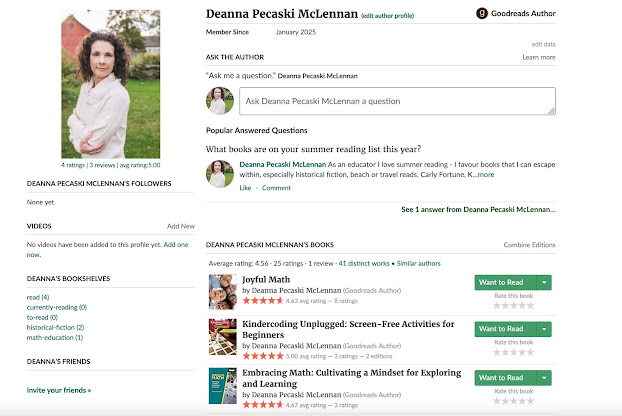
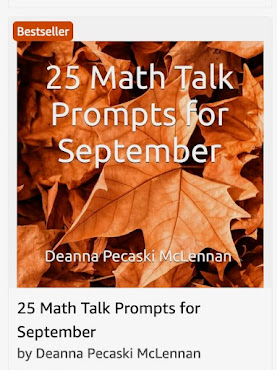
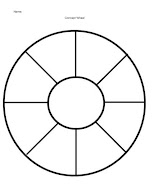

.jpeg)






.jpeg)


.jpeg)


.jpeg)
.jpeg)
.jpeg)



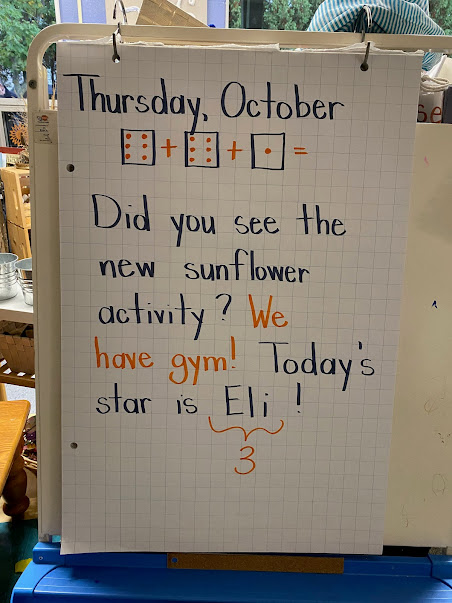



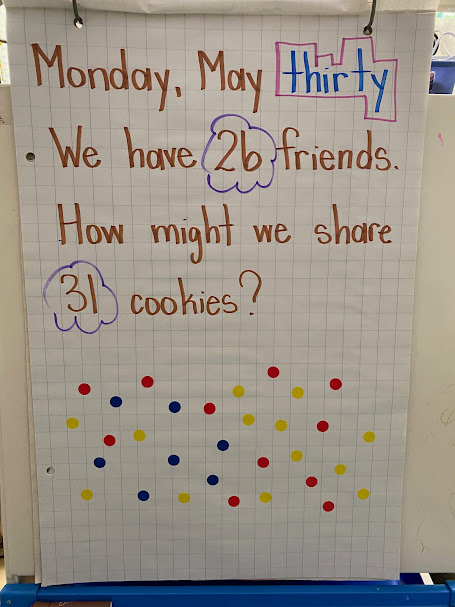






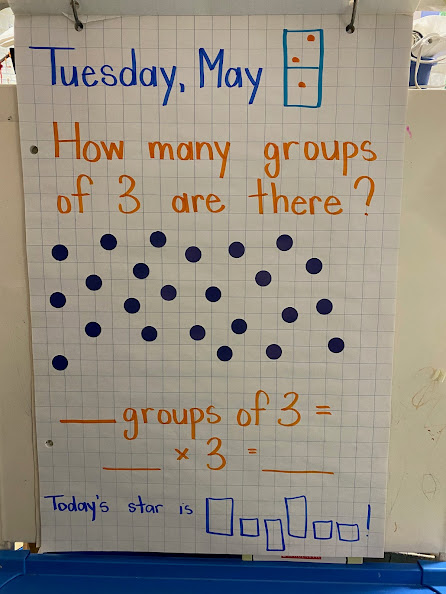








.jpeg)
.jpeg)
.jpeg)